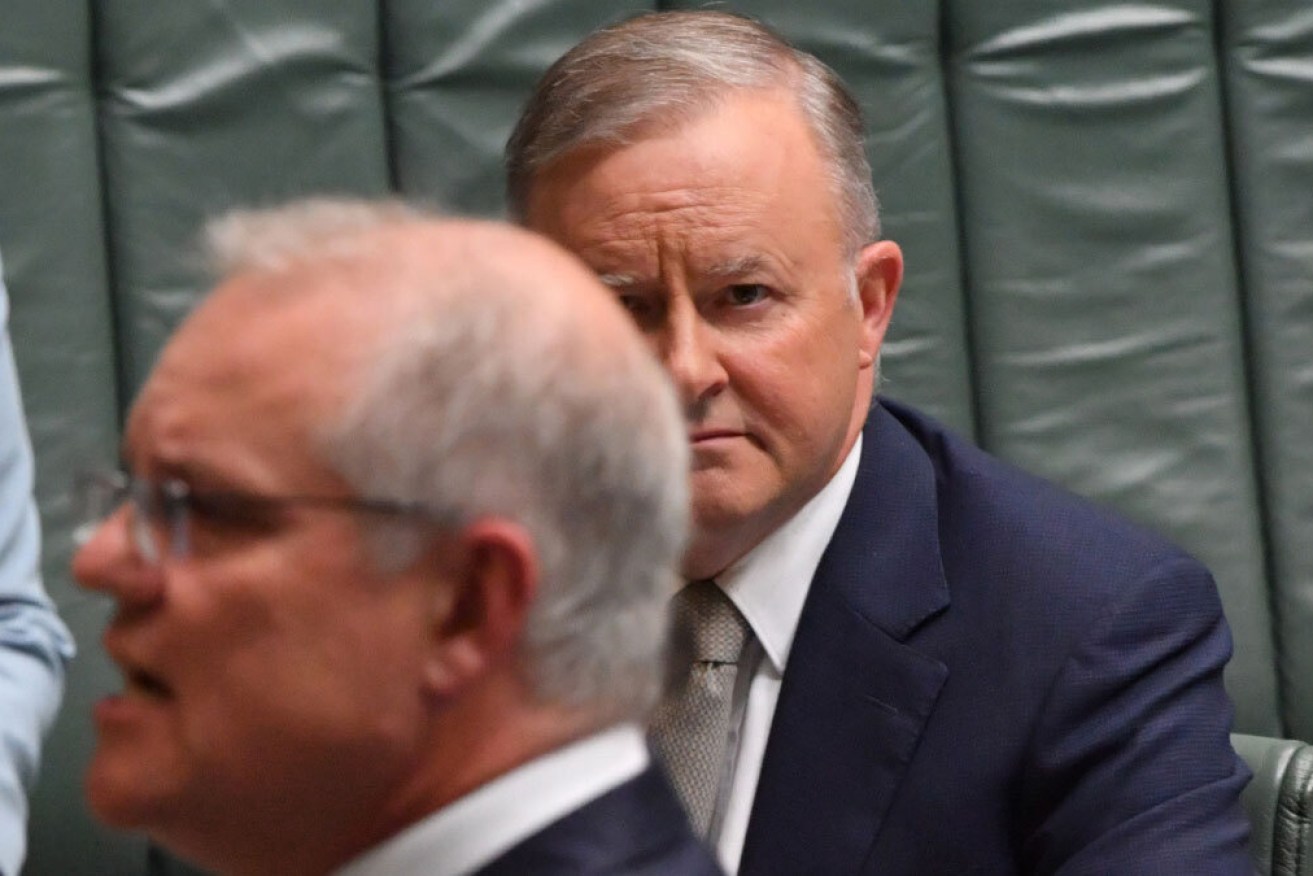‘Most serious loss’: Liberal election review singles out Morrison


Voters showed vastly different attitudes towards Anthony Albanese, left, and Scott Morrison, according to a Liberal Party review.
A review of the Liberal Party’s federal election defeat has found the result was the “most serious loss” for the party in its political history – and singled out Scott Morrison as a key factor.
The review, carried out by former party director Brian Loughnane and Victorian senator Jane Hume, also found the party’s results in metropolitan areas and among female voters were concerning.
“The result is not comparable to any previous one in Australian political history. Consequently, it poses a significant and unique challenge to the party,” the review, released on Thursday, said.
“The result was driven by a combination of major strategic factors, reinforced by a series of individual and state and local issues which together resulted in the most serious loss for the party in its history.”
The report also singled out the contrast between then-prime minister Mr Morrison and Labor leader Anthony Albanese as one of the biggest negatives for the party.
“The prime minister’s standing with voters deteriorated significantly through 2021 to become a significant negative. The prime minister and the party were seen as ‘out of touch’,” the report said.
“The leadership choice between Scott Morrison and Anthony Albanese became the most influential driver of voting intention during the campaign period.”
Tweet from @LoughnaneB
The Coalition suffered a swing of more than 5 per cent at the May election, with the Liberals losing 18 seats.
“The Liberal Party now holds only four of the 44 inner metropolitan seats,” the review says.
“Of particular concern in the results is that in seats with high numbers of female professional voters, the Liberal Party only holds three of the top 30 seats where previously it held 15.”
The loss of metropolitan seats to so-called teal independents was also highlighted as a significant threat to the party.
“The emergence of the teals meant the party needed to campaign on two different fronts,” the review said.
“This naturally also compromised the party’s ability to campaign with a single national message.”
The review, which attracted more than 600 submissions, said the previous government’s focus on COVID also affected its ability to “fully appreciate serious political developments”, including the rise of the teal candidates in some of its most cherished seats.
Senator Hume and Mr Loughnane noted that the 2022 election result had left the Liberal Party with the lowest number of women in its parliamentary ranks since 1993. They recommended a target of equal representation within 10 years – but stopped short of a mandate, or quotas.
The election post-mortem also took aim at delays in preselections in crucial electorates in the lead up to the poll.
“The delays in holding preselections narrowed the field of possible quality candidates and resulted in the party not selecting a candidate with a reasonable prospect of winning the seat,” the review said.
“In too many instances, the structures of the party in the lead-up to the 2022 election were unable to resolve these logjams … interventions in divisions on preselection matters should therefore occur only in the most extraordinary circumstances.”
Thursday’s release of the Liberal review followed Labor’s release of its own version earlier this month. Conducted by Labor veterans Greg Combet and Lenda Oshalem, it made 27 recommendations to establish a “long-term, progressive Labor government”.
However, it also identified Mr Morrison’s unpopularity as “the single most significant factor in Labor’s victory”.
-with AAP








